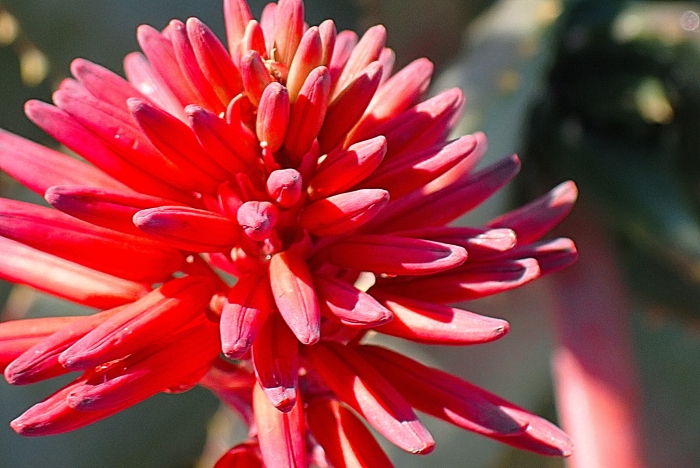Mitre Aloe
(Aloe perfoliata)
Mitre Aloe (Aloe perfoliata)
/
/

Di Turner
Public Domain
Image By:
Di Turner
Recorded By:
Copyright:
Public Domain
Copyright Notice:
Photo by: Di Turner | License Type: Public Domain | License URL: http://creativecommons.org/publicdomain/zero/1.0/ | Rights Holder: Di Turner | Publisher: iNaturalist | Date Created: 2021-08-28T11:50:27-07:00 |














































Estimated Native Range
Summary
Aloe perfoliata, commonly known as Mitre Aloe, is an evergreen succulent native to rocky slopes and quartz fields in the Western and Southern Cape regions of South Africa. This hardy species is adapted to a Mediterranean-type climate with winter rainfall and hot, dry summers. It typically forms sprawling clusters that can reach up to 2 meters across, with prostrate, branching stems. The leaves are thick and fleshy, often curving inwards during drought, resembling a bishop’s mitre, hence the common name. The leaf margins are adorned with small, harmless white teeth. Mitre Aloe’s appearance is highly variable, with sun-exposed plants developing tightly arranged bluish leaves, while shaded individuals have more widely spaced green leaves. Leaves can turn red under dry conditions.
Mitre Aloe is valued for its drought tolerance and unique summer blooming habit, with red flowers emerging on variable stalks that can be rounded to cone-shaped. It is an excellent choice for xeriscaping, rock gardens, and as a ground cover on slopes or walls, adding structural interest and color. It thrives in full sun to part shade, requiring very low to low water once established, and prefers well-drained sandy soils. Propagation is straightforward through stem cuttings, which should be dried and planted in sand. While it is a tough plant, it can be susceptible to root rot if overwatered or planted in poorly drained soils.CC BY-SA 4.0
Mitre Aloe is valued for its drought tolerance and unique summer blooming habit, with red flowers emerging on variable stalks that can be rounded to cone-shaped. It is an excellent choice for xeriscaping, rock gardens, and as a ground cover on slopes or walls, adding structural interest and color. It thrives in full sun to part shade, requiring very low to low water once established, and prefers well-drained sandy soils. Propagation is straightforward through stem cuttings, which should be dried and planted in sand. While it is a tough plant, it can be susceptible to root rot if overwatered or planted in poorly drained soils.CC BY-SA 4.0
Plant Description
- Plant Type: Succulent
- Height: 2-3 feet
- Width: 1-2 feet
- Growth Rate: Moderate
- Flower Color: Yellow, Orange, Red
- Flowering Season: Summer
- Leaf Retention: Evergreen
Growth Requirements
- Sun: Full Sun, Part Shade
- Water: Very Low, Low
- Drainage: Fast
Common Uses
Bee Garden, Bird Garden, Drought Tolerant, Fire Resistant, Hummingbird Garden, Low Maintenance, Rabbit Resistant, Rock Garden, Street Planting
Natural Habitat
Rocky slopes and quartz fields in the Western and Southern Cape regions of South Africa
Other Names
Common Names: Rubble Aloe, Guldtandsaloe
Scientific Names: , Aloe mitriformis, Aloe perfoliata, Aloe mitriformis var. commelyni, Aloe mitriformis var. flavispina, Aloe albispina, Aloe commelyni, Aloe commelyni var. flavispina, Aloe commelyni var. mitriformis, Aloe commelyni var. pachyphylla
GBIF Accepted Name: Aloe perfoliata L.